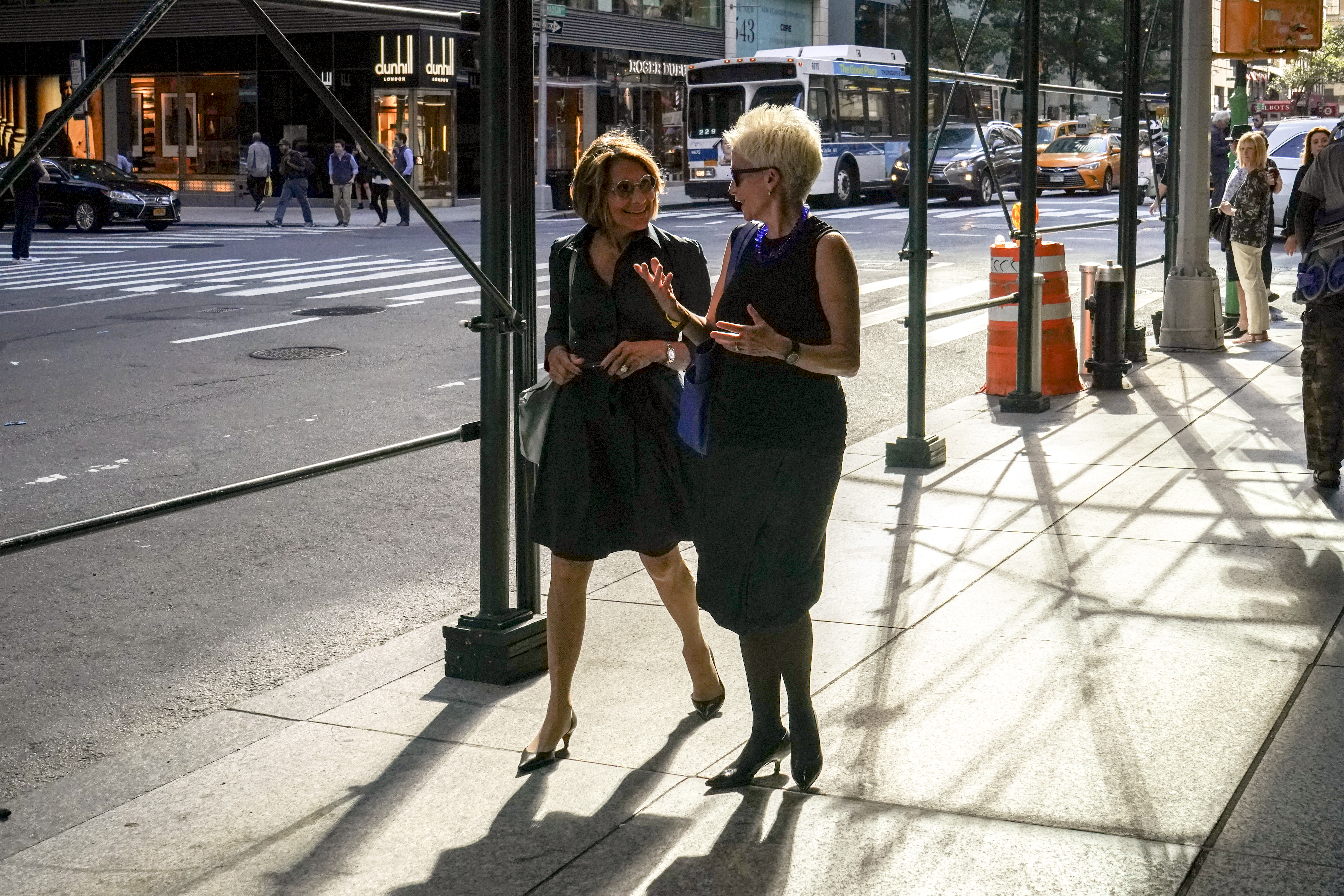There you are. A retired Boomer woman professional with… No office. No title. No business cards. No deadlines. Nothing on the back burner. No colleagues. No nothing.
At first, you luxuriate. You relish the freedom. You lunch. You read. You beach. You clean closets. But soon, if you’re like us, you begin to panic.
There’s nothing you have to do. No plans. No obligations. Everyone seems to be busy working— except you. Is there any good reason to bother even to get dressed, put on makeup, walk out the door?
Sound familiar? Join the club.
The early days are hard; going from 90 mph to zero in 24 hours is a rough ride. Your life is utterly changed. The future, and your place in it, is difficult to imagine.
Maybe you mourn, because you lost something you valued: who you were.
It’s easy to fall into depression, loneliness, paralysis.
But don’t.
You can start to move forward.
How? Recognize that your career and accomplishments provide a way in to new opportunities and experiences. They give you credentials that others don’t have. They help you establish a structure that keeps you in control and engaged— even before the rest of your life begins to take shape.
Think of it this way: Even when we had the institutional structure of our jobs, we needed a personal brand, our face to the world. How we presented ourselves was an important part of how we saw ourselves and how we were seen. Particularly as women, our images and identities were tightly wound together. We learned early that how we carried ourselves — and, yes, how we wore our clothes — were our signature and our armor, and critical to our success.
Now that we have retired, how we present ourselves is still critical to success.
Lots of things have changed, of course. The structures and obligations of our jobs are done. The status and power and control that came from work are gone. But not everything is different. The most important thing that has not changed is us.
We are still the same women we were the day before we retired. We are still the smart, vibrant, engaged, stylish people we have always been.
Our careers did not evaporate. Our skills, experience and tested judgment haven’t disappeared. They give us cred for the future, a foundation for taking control and figuring out who we are now.
We have new choices to make, and new opportunities, in a new context. Putting what we know to good use will help us get over the hump, decide how we will live life and provide a launching pad for figuring out the next several decades.
Get seen. Continuing to get dressed in the morning and, if you can, go out of the house works wonders. We’re not talking about being “dressed up” (unless you want to). The point is to continue to signal that you still feel good about yourself. Not done. Still engaged in what’s going on.
So don’t give away those clothes you love. Wear them. Put on makeup, even if it’s minimal. Put your shoulders back. Prepare yourself for getting out there.
You can still look like a thousand bucks. You never know what will happen. Maybe we’re faking it, but soon….well, you never know.
2. Say “Yes.” As working folks, we said no to a lot of things that were not essential to our jobs. Now, in retirement, you can take an entirely different approach. The two of us say “yes” to just about anything. Invitations to meet new people. Opportunities that are different from anything we have done before. Sign up for anything that looks interesting.
Before COVID, saying yes led us to: spend time at a Dude Ranch; take classes where we met people; attend conferences where we struck up friendships with young entrepreneurs and winemakers; hold reunions with old friends; introduce ourselves to authors, filmmakers and podcasters. You never know where a simple “yes” may lead. We expect to be saying “yes” again–even more than before.
3. Take control of time. Family obligations aside, you are now in control of you, and there are a lot of new ways to think about filling your days. It’s up to you to decide whether to include something new on your calendar every week. You can choose the daytime to schedule things that you may have previously scheduled for early mornings or after work.
Choose to reconnect with old friends.
Making these choices is empowering. Each one can create new experiences, new adventures, a new community. And the extra benefit is that they add up, filling your calendar and keeping you engaged with the world while you figure out your longer-term play.
4. Have fun. We believe that fun should play a big part in getting over this rough patch. Doing all those things you couldn’t do before — a weekday ball game, an early bird movie, a long lunch with a glass of wine, a good conversation that goes late into the night — puts a happy spin on just about everything.
So put on your game face. Get up, get dressed, get out.
Decide how you want to see yourself and have others see you.
Take control and choose how (and with whom) you want to spend your time.
You’re not done. You know it. Stay engaged. You will figure it out. It may just take some time.
To read more, please visit the Lustre.


